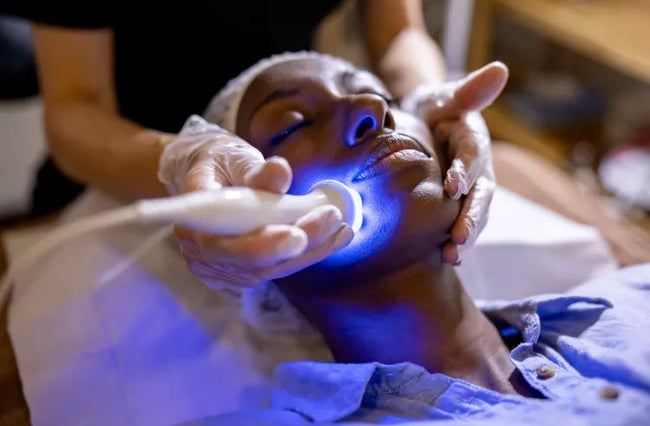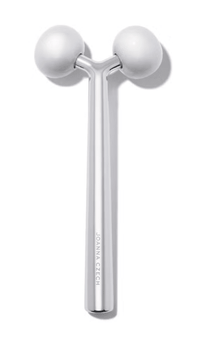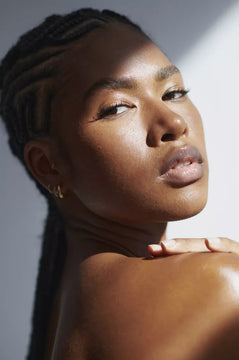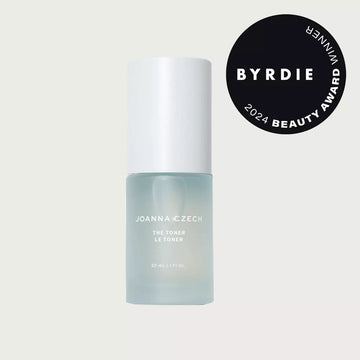What Does a Facial Do For your Skin?

A facial is one of those skin treatments that is so often talked about, we just assume that it is good for us. But exactly is a facial? And — more importantly — what does a facial do for your skin?
Simply put, or as celebrity esthetician Joanna Czech tells InStyle, a facial is “a multi-step, multi-purpose skin treatment that addresses your specific skin conditions in an effort to keep skin balanced, hydrated, clean, healthy, and glowing skin.”
“It contributes to the improvement of the appearance of your skin,” adds Dr. Hope Mitchell, M.D., Board-Certified Dermatologist and member of the Skin Of Color Society. “In addition, it purifies and regenerates your skin, which leads to an overall improvement in its health.”
So now that it’s confirmed by the experts to be beneficial to our skin health, let’s dive into what exactly goes on during one of the most popular skin treatments out there.
What are the benefits of facials?
In general, facials can address a number of skin concerns. Czech lists hydration, brightening, purifying, balancing, calming, sculpting, and lifting of the skin as just some of the benefits that come with getting a facial. Dr. Mitchell adds that facials can also improve circulation, which results in stimulating collagen production and enhancing cellular health, and can help the skin care products in your daily and nightly routine to work better when you use them at home.
What kind of facials are there?
Whatever your skin concern may be, there is a facial that suits your needs. New York City-based licensed esthetician Sofie Pavitt says some of the most common facials are as follows:
- Deep clean facials, which focus on exfoliation and extractions.
- Facial massage, which involves deep massage techniques to relax and sculpt the face.
- Chemical peel, which uses a chemical exfoliant to resurface the skin.
- Hydrafacial, which involves a device to push and vacuum serums into the skin.
- Laser facial, which rejuvenates the skin and targets redness, dull complexions, and oil congestion.
Where should I go for a facial?
As with any skin treatment you’ll want to go somewhere that has licensed professionals performing facials on clients. So do your research. “First decide what your skincare problems are that you want to address," says Pavitt. "Then, you can research in your area if there is anyone specializing in that.”
You can’t go wrong visiting a dermatology practice or a medical spa if you have questions; Dr. Mitchell says these places are where you’ll be properly guided by a dermatologist, esthetician, or licensed cosmetologist.
What type of professional performs this treatment?
Czech says that licensed estheticians and dermatologists are the ones you should turn to for a facial. If you want to verify that your technician is in fact licensed, she says you can check with your state boards to look it up. Pavitt adds that the studio or spa that you go to should also be licensed as a cosmetology business, so be sure to check for that as well to be thorough. “This is for your own protection and assurance that you are getting professional treatment,” she says.
You’ll also want a licensed professional that has an initial consultation before even touching your face. Czech advises making sure that whoever you see asks questions about your skin and health conditions so they come up with an appropriate treatment plan that best suits your needs.
How long does a facial take?
This is all dependent on what type of facial you book an appointment for, but Dr. Mitchell says they can typically take as long as 30 to 90 minutes.
How much does a facial cost?
Pavitt says that facial costs can vary, depending on location and what type of facial. (For reference, she says a basic deep clean facial in New York City can range anywhere from $150 to $200 at a reputable spa).
How do you take care of your skin pre- and post-treatment?
What you can and can’t do before a facial depends on what kind of facial you get. In general, Czech says that you shouldn’t be getting a facial for at least 72 hours after getting filler, botox, dental or mouth surgery, or certain laser treatments as you don’t want to cause any negative reactions from those. Pavitt adds that you might want to avoid using exfoliants or active ingredients for a few days before a facial to minimize the chances of irritation. You’ll also want to avoid shaving anywhere on your face for at least 24 hours.
Your technician will also advise you on how to take care of your skin after the treatment is done. Czech says that each person needs a specific skin care plan for their conditions and needs and that you should be getting proper product recommendations for your post-facial at-home regimen.
In general, Pavitt says you’ll want to avoid any exfoliation for a few days after and stick to gentle products such as the Pacifica Vegan Ceramide Extra Gentle Face Wash to soothe and calm the skin. You’ll also want to make sure your skin is protected from sun damage, so sunscreen every day is a must. She recommends something like the iS Clinical Extreme Protect SPF 30 to use daily.
Dr. Mitchell adds that you’ll want to avoid toners, especially ones that are alcohol-based have exfoliating properties, or are astringent. Try to stay away from makeup if you can and make sure any makeup or skincare tools have been thoroughly cleansed before use to avoid getting acne. On top of applying sunscreen, she says to drink plenty ot water and moisturize to keep your skin healthy.
How long do results last?
Czech says that your age, budget lifestyle, health, and other skin treatments you get can all affect how long results last. “Facial results are cumulative, meaning the more regularly you get them, the better the results," she explains. “Think about facials the same way you think about eating healthy or exercising.”
The Bottom Line
Czech says that when you go to an experienced professional, negative side effects should be minimal. Some facials, such as extractions and laser treatments may cause redness and sensitivity, but she says those side effects should subside after a day or two.
Pavitt adds that you should avoid treatment if you’re suffering from something irritating (e.g. perioral dermatitis) as a facial might make you flare up even more. Accutane users will also want to wait until their skin is stronger to take on additional treatments.
But this is why the initial consultation before getting a facial is important. You should communicate with your technician about what products you use regularly and if you’ve recently gotten fillers, botox, or dental, or mouth surgery. You should also disclose whether you’re pregnant or have any other health conditions. Your technician will guide you in getting the right facial to prevent harm from being done to the skin.



